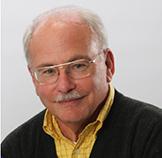
Research Topics
The major focus of the Cellular Immunology Section over the past 25 years has been furthering our understanding of the function of T regulatory cells (Tregs) that express the transcription factor Foxp3. Our group was one of the first in the world to realize the importance of Treg and we performed many of the initial studies that described their phenotype and function. The study of Tregs is now one of the most active areas of research in basic and clinical immunology and the therapeutic use of Treg is now in the clinic. It was originally assumed that Treg were a dedicated lineage of cells that developed only from thymic precursors, but more recent studies have clearly documented that Foxp3+ T cells also develop from conventional T cells (Tconv) in extra-thymic peripheral sites in vivo, and these are termed peripherally induced Tregs (pTregs). Treg can also be generated in culture in the presence of transforming growth factor-b1 (TGF-b1) and are termed induced Tregs (iTreg). The relative importance of tTreg and pTreg is unknown. Although most of our studies deal with Tregs in mouse models, over the past 15 years we have also carried out studies on human Tregs (hTregs) derived from normal donors. Our ongoing studies are described below and have been divided up into five major projects with significant overlap between the projects. We also intentionally validate new and novel findings that we learn in one species with similar studies in another species, as there appears to be conservation of many aspects of Treg function across the species.
Biography
Dr. Shevach received his M.D. from Boston University in 1967. Following clinical training, he joined the Laboratory of Immunology as a senior staff fellow in 1972, was appointed a senior investigator in 1973, and became a section chief in 1987. Dr. Shevach served as editor-in-chief of the Journal of Immunology from 1987 to 1992 and editor-in-chief of Cellular Immunology from 1996 to 2007. He received the 2004 William B. Coley Award for Distinguished Research in Basic and Tumor Immunology.
Awards
Distinguished Service Award (American Association of Immunologists), Distinguished Alumnus Award (Boston University School of Medicine).
Memberships
- American Association of Immunologists
- American Society for Clinical Investigation
- Association of American Physicians
Editorial Boards
- Immunity
- The Journal of Immunological Methods
- Journal of Biomedical Science
- Journal of Experimental Medicine
- Current Protocols in Immunology
- Human Immunology
Special Interest Groups
- Immunology
Selected Publications
- Akkaya B, Oya Y, Akkaya M, Al Souz J, Holstein AH, Kamenyeva O, Kabat J, Matsumura R, Dorward DW, Glass DD, Shevach EM. Regulatory T cells mediate specific suppression by depleting peptide-MHC class II from dendritic cells. Nat Immunol. 2019;20(2):218-231.
- Panda AK, Gangaplara A, Buszko M, Natarajan K, Boyd LF, Sharma S, Margulies DH, Shevach EM. Cutting Edge: Inhibition of the Interaction of NK Inhibitory Receptors with MHC Class I Augments Antiviral and Antitumor Immunity. J Immunol. 2020;205(3):567-572.
- Thornton AM, Lu J, Korty PE, Kim YC, Martens C, Sun PD, Shevach EM. Helios+ and Helios- Treg subpopulations are phenotypically and functionally distinct and express dissimilar TCR repertoires. Eur J Immunol. 2019;49(3):398-412.
- Sebastian M, Lopez-Ocasio M, Metidji A, Rieder SA, Shevach EM, Thornton AM. Helios Controls a Limited Subset of Regulatory T Cell Functions. J Immunol. 2016;196(1):144-55.
- Gangaplara A, Martens C, Dahlstrom E, Metidji A, Gokhale AS, Glass DD, Lopez-Ocasio M, Baur R, Kanakabandi K, Porcella SF, Shevach EM. Type I interferon signaling attenuates regulatory T cell function in viral infection and in the tumor microenvironment. PLoS Pathog. 2018;14(4):e1006985.
Related Scientific Focus Areas
This page was last updated on Monday, August 18, 2025


